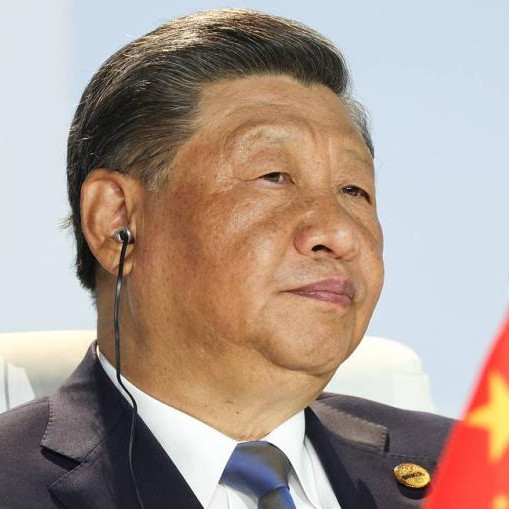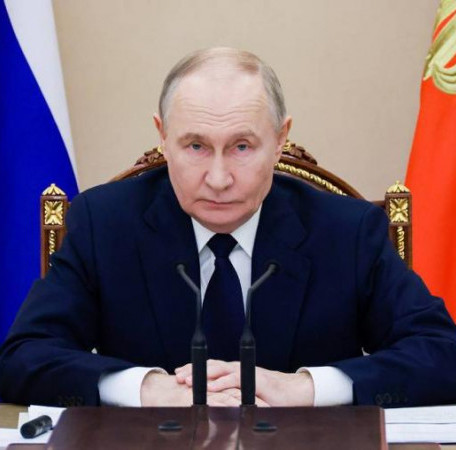The riots in France have made European governments take urgent steps to prevent such incidents from happening on their territory. The main accent has been placed on actively holding back illegal immigration.
Following the lead of the European tendencies, the Lithuanian government also declared its intention of reducing the number of immigrants entering the country, first of all natives of the Northern Caucasian republics. Lately, observers note the growth of "misgivings complex" of Lithuanian officials in respect of Chechen natives. The reason is, above all, the deterioration of the criminal situation in the country and the direct implication of Chechen immigrants in it.
So it is not accidental that the authorities, when taking stock of the prevailing situation, have been alarmed by the immediate prospects and showing ever less patience with the Chechens arriving in Lithuania. However, it is only themselves that Lithuanians have to blame for the current state of affairs.
Since the mid-1990s, as soon as it was decided that the state would pay the rent of the apartment, the utility services plus 126 Litas (about $43) per month to those whom the Lithuanian Immigration Department has given a residence permit, the country was virtually inundated by Chechen "refugees".
Annually the Lithuanian Immigration Department issued residence permits to over 300 Chechens, who received a refugee status or a right to additional social benefits. Only in 2004, 12 Chechens received a refugee status and about 350 a right to additional social benefits. During 9 months of this year the number of Chechens who found shelter in that Baltic state exceeded 230 people.
According to the "Kaliningradskaya Pravda" daily newspaper, the first problems of the Lithuanian police began when a group of Chechen youths who came from Russia allegedly to study at Vilnius University, in reality became involved in robbery, drugs trafficking and other criminal activities. In 1999 police detained a group of Chechens trading in heroin and counterfeit dollar notes.
The Lithuanian government, faced with the problem of the growth of the Chechen immigration and the general deterioration of the criminal situation in the country, began to take measures in order to divide the Chechen community by assigning different towns for small groups of Chechen immigrants to settle in.
The experience gained at the refugee reception center in the town of Rukla has demonstrated that the Chechens concentrated there, while waiting for a residence permit, represented a serious threat. According to the Rukla police, most of the problems have been created on the criminal plane by young Chechens.
They are tough, capable of offering serious resistance to the authorities and apt to impose their will not only on immigrants from other countries, but also on the administration of the refugee reception center. Just imagine the Chechen immigrants demanding that the personnel of the center learn the Chechen language to communicate with them!
After a few months spent at the center the Chechens are moved into state-hired apartments on the condition that after a year's time assigned for their integration (mastering the Lithuanian language) they register at the labor exchange and start working. Nevertheless, according to the police of the town of Alitus, none of those Chechens who came under its surveillance started working or have been looking for a legal source of subsistence. On the other hand, cases have already been registered of underage Chechens pushing marijuana near school grounds.
In the town of Ionava, Chechens start brawling in bars and attack local people. In one instance young Chechens tore up a Lithuanian flag before the very eyes of the police after snatching it from local youths.
Lithuanian Police Commissioner General, Vytautas Grigoravicius, analyzing the criminal situation in the country ahead of Lithuania's admission to the European Union, warned that if the number of Chechens in the country continues to grow, an impending appearance of a dangerous ethnic-based criminal organization is not to be ruled out.
The speed of the developments in the Paris suburbs and the increase in crime incidence inside Lithuania itself have made Vilnius harden its attitude towards Chechen immigrants. Now the official Vilnius is trying to determine how many Chechens should be admitted to the country annually. The authorities are trying, on the one hand, to reduce the incidence of crime in the country and, on the other, to maintain the image of being "Chechens' friends and helpers". Thus, it is proposed to limit the issue of residence permits to 120-150 people in 2006, and to 40-50 in 2007-2010 annually.
Commenting on these figures, V. Grigoravicius had to acknowledge that a major part of the Chechen immigrants in Lithuania are ex-members of terrorist formations. Thus one of the high-ranking state officials has re-affirmed the Vilnius administration's policy of providing support for gunmen who are part of international terrorism. At the same time, some politicians in Lithuania warn that it will be rather difficult to implement the immigration plan, as the Chechen diaspora has a powerful lobby in the parliament and exerts an active influence on the functioning of the immigration service.
Following the lead of the European tendencies, the Lithuanian government also declared its intention of reducing the number of immigrants entering the country, first of all natives of the Northern Caucasian republics. Lately, observers note the growth of "misgivings complex" of Lithuanian officials in respect of Chechen natives. The reason is, above all, the deterioration of the criminal situation in the country and the direct implication of Chechen immigrants in it.
So it is not accidental that the authorities, when taking stock of the prevailing situation, have been alarmed by the immediate prospects and showing ever less patience with the Chechens arriving in Lithuania. However, it is only themselves that Lithuanians have to blame for the current state of affairs.
Since the mid-1990s, as soon as it was decided that the state would pay the rent of the apartment, the utility services plus 126 Litas (about $43) per month to those whom the Lithuanian Immigration Department has given a residence permit, the country was virtually inundated by Chechen "refugees".
Annually the Lithuanian Immigration Department issued residence permits to over 300 Chechens, who received a refugee status or a right to additional social benefits. Only in 2004, 12 Chechens received a refugee status and about 350 a right to additional social benefits. During 9 months of this year the number of Chechens who found shelter in that Baltic state exceeded 230 people.
According to the "Kaliningradskaya Pravda" daily newspaper, the first problems of the Lithuanian police began when a group of Chechen youths who came from Russia allegedly to study at Vilnius University, in reality became involved in robbery, drugs trafficking and other criminal activities. In 1999 police detained a group of Chechens trading in heroin and counterfeit dollar notes.
The Lithuanian government, faced with the problem of the growth of the Chechen immigration and the general deterioration of the criminal situation in the country, began to take measures in order to divide the Chechen community by assigning different towns for small groups of Chechen immigrants to settle in.
The experience gained at the refugee reception center in the town of Rukla has demonstrated that the Chechens concentrated there, while waiting for a residence permit, represented a serious threat. According to the Rukla police, most of the problems have been created on the criminal plane by young Chechens.
They are tough, capable of offering serious resistance to the authorities and apt to impose their will not only on immigrants from other countries, but also on the administration of the refugee reception center. Just imagine the Chechen immigrants demanding that the personnel of the center learn the Chechen language to communicate with them!
After a few months spent at the center the Chechens are moved into state-hired apartments on the condition that after a year's time assigned for their integration (mastering the Lithuanian language) they register at the labor exchange and start working. Nevertheless, according to the police of the town of Alitus, none of those Chechens who came under its surveillance started working or have been looking for a legal source of subsistence. On the other hand, cases have already been registered of underage Chechens pushing marijuana near school grounds.
In the town of Ionava, Chechens start brawling in bars and attack local people. In one instance young Chechens tore up a Lithuanian flag before the very eyes of the police after snatching it from local youths.
Lithuanian Police Commissioner General, Vytautas Grigoravicius, analyzing the criminal situation in the country ahead of Lithuania's admission to the European Union, warned that if the number of Chechens in the country continues to grow, an impending appearance of a dangerous ethnic-based criminal organization is not to be ruled out.
The speed of the developments in the Paris suburbs and the increase in crime incidence inside Lithuania itself have made Vilnius harden its attitude towards Chechen immigrants. Now the official Vilnius is trying to determine how many Chechens should be admitted to the country annually. The authorities are trying, on the one hand, to reduce the incidence of crime in the country and, on the other, to maintain the image of being "Chechens' friends and helpers". Thus, it is proposed to limit the issue of residence permits to 120-150 people in 2006, and to 40-50 in 2007-2010 annually.
Commenting on these figures, V. Grigoravicius had to acknowledge that a major part of the Chechen immigrants in Lithuania are ex-members of terrorist formations. Thus one of the high-ranking state officials has re-affirmed the Vilnius administration's policy of providing support for gunmen who are part of international terrorism. At the same time, some politicians in Lithuania warn that it will be rather difficult to implement the immigration plan, as the Chechen diaspora has a powerful lobby in the parliament and exerts an active influence on the functioning of the immigration service.


